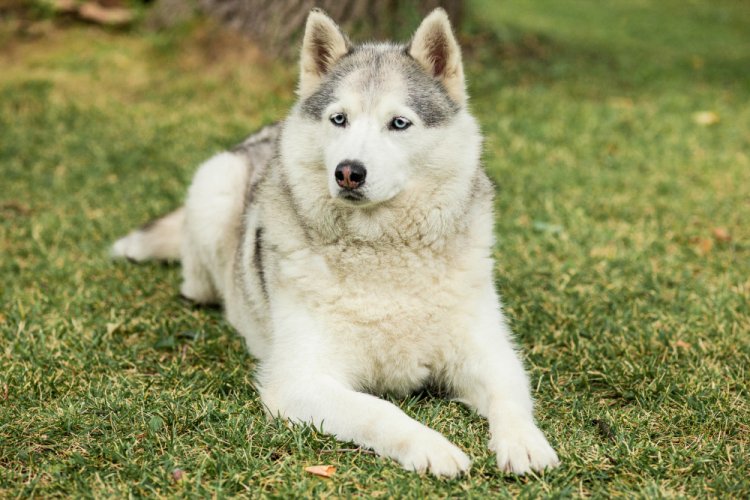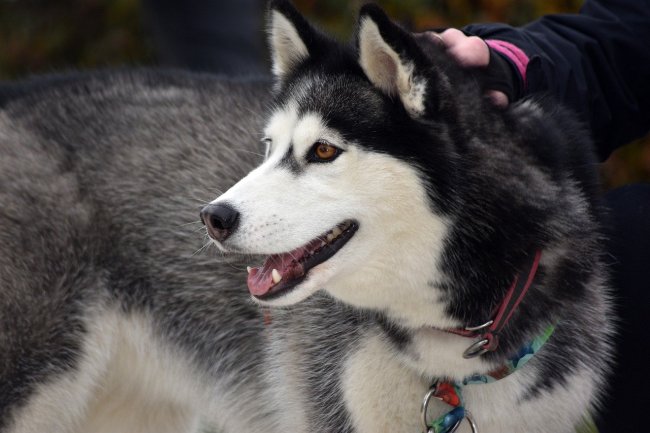The Best Diet for Your Siberian Husky
Get the best diet for your Siberian husky! Learn about their nutritional needs, feeding guidelines, and healthy food options. Read now at Adhi Kennel Pet Shop.

The Best Diet for Your Siberian Husky
Introduction
Understanding Siberian Husky Nutritional Needs
Siberian huskies are known for their high energy levels and metabolism. To keep up with their active lifestyle, they require a diet rich in proteins, fats, carbohydrates, vitamins, and minerals. Proteins are vital for muscle development and repair, while fats provide the necessary energy. Carbohydrates, though not as crucial, can offer additional energy, especially for active dogs. you can look for best Siberian husky for sale in bangalore. Vitamins and minerals support various bodily functions, ensuring your Husky stays healthy and active. Additionally, similar nutritional considerations apply to other active Top Dog Breed for Families, like German Shepherds, who also benefit from high-quality protein and balanced diets to support their energy levels and muscle development.
Choosing the Right Type of Food
When it comes to feeding your husky, selecting the right type of food is essential.
Commercial Dog Food:
Dry Kibble: Convenient and helps maintain dental health. However, ensure it’s high-quality and free from unnecessary fillers.
Wet food offers more moisture and can be more palatable for picky eaters, but it may contribute to dental issues if not balanced with dental chews.
Grain-Free Options: It's good for Huskies with grain sensitivities, though it’s important to ensure they receive enough fiber from other sources.
Raw Diet: Includes uncooked meat, bones, and organs. This diet mimics what wild dogs eat and can improve coat health and digestion. However, it carries risks of bacterial contamination and requires careful balance to avoid nutritional deficiencies.
Home-cooked meals allow you to control ingredients and ensure high-quality nutrition. Include lean meats, vegetables, and grains while avoiding harmful foods. Consult with a vet to create a balanced diet plan.
Essential Nutrients for Siberian Huskies
Protein is essential for muscle development. Good sources include chicken, beef, lamb, and fish.
Fats provide energy and support coat health. Include healthy fats like fish oil and flaxseed oil.
Carbohydrates: Though not always necessary, they can provide additional energy. Opt for complex carbs like sweet potatoes and brown rice.
Vitamins and Minerals: Ensure your Husky gets a balanced intake of vitamins and minerals through a varied diet or supplements as recommended by a vet.
Hydration: Always provide fresh water. Huskies can dehydrate quickly due to their thick coats and high activity levels.
Feeding Guidelines and Portions
Determining the right portion size is crucial and depends on your Husky’s age, weight, and activity level.
Puppies: Require frequent, smaller meals rich in nutrients to support growth.
Adults typically need two balanced meals per day. Monitor their weight and adjust portions as needed.
Seniors may need fewer calories but require nutrient-dense food to maintain health.
Avoid overfeeding to prevent obesity, which can lead to health issues. Regularly check your husky’s weight and adjust portions to maintain a healthy physique.
Foods to Avoid
Certain foods can be toxic or harmful to your husky.
Chocolate contains theobromine, which is toxic to dogs.
Grapes and raisins can cause kidney failure.
Onions and garlic can damage red blood cells.
Avocados contain persin, which can be harmful in large quantities.
Human Foods: Some human foods are safe, but many are not. Always check before sharing.
Special Dietary Considerations.
Puppies: They need a diet rich in protein and fat for proper growth. Feed them specially formulated puppy food.
Seniors require fewer calories but need nutrient-dense foods to maintain their health. Consider senior-specific formulas.
Health Concerns: If your Husky has allergies, digestive issues, or other health problems, consult your vet to tailor their diet accordingly.
Homemade Dog Food Recipes
Creating homemade meals can be rewarding. Here’s a simple recipe:
Ingredients: lean chicken, brown rice, carrots, peas, and spinach.
Preparation: Cook the chicken thoroughly and chop it into small pieces. Cook the rice and vegetables until tender. Mix it and let it cool before serving.
Homemade food can improve digestion and coat health, but ensure it’s balanced. Consult with a vet to include all necessary nutrients.
Treats and Snacks
Healthy treats are great for training and bonding.
Healthy Options: carrot sticks, apple slices (without seeds), and small pieces of cooked meat.
Homemade Treats: Bake treats using dog-friendly ingredients like pumpkin and oats.
Role of Treats: Use treats for positive reinforcement during training, but avoid overfeeding.
Supplements and Additives
Supplements can enhance your Husky’s diet.
Fish oil promotes a healthy coat and skin.
Glucosamine: supports joint health, especially in older dogs.
Consult a vet before adding any supplements to ensure they are necessary and safe.
Monitoring and Adjusting Your Husky’s Diet
Regularly monitor your husky’s health to ensure their diet is effective.
Signs of a Healthy Diet: Shiny Coat, Healthy Weight, and Good Energy Levels.
Regular vet check-ups: Schedule routine visits to monitor their health and adjust their diet as needed.
Seasonal Changes: Adjust their diet based on activity levels and seasonal changes to maintain optimal health.
Conclusion
In summary, a well-balanced diet is crucial for your Siberian Husky’s overall health and well-being. By understanding their nutritional needs, choosing the right food, and monitoring their health, you can ensure they lead a happy and active life. Always consult with a vet for personalized dietary advice.
Call to Action
We’d love to hear your experiences and tips on feeding your huskies. Share your thoughts in the comments below! For more expert advice and top-quality
products, visit Adhi Kennel Pet Shop and Care, your premier dog breeder in Bengaluru. Subscribe to our blog for more tips on husky care and nutrition.
What's Your Reaction?














